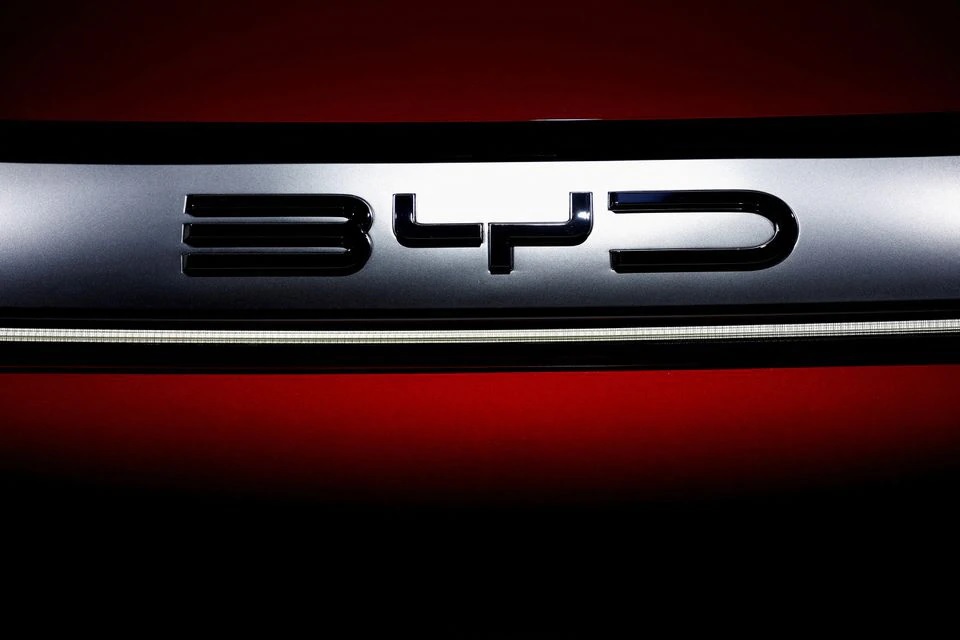Oct 18 (Reuters) – BYD Co (002594.SZ), China’s biggest electric car maker, said third-quarter net profit likely more than quadrupled as it extends its sales lead over Tesla Inc (TSLA.O) in the world’s largest auto market. Shares in BYD jumped.
Having ditched gasoline vehicles from its product mix this year, BYD has, more than any other automaker, been able to capitalise on a range of incentives for electric cars offered by the Chinese central government as well as local governments.
Robust sales and a product range broader than other EV competitors have in turn allowed the company, which is 19% owned by Warren Buffett’s Berkshire Hathaway (BRKa.N), to significantly reduce costs per vehicle.
An improved product mix led by vehicles such as its upmarket Han sedan has also helped drive earnings.
BYD estimated net profit for the July-September quarter to come in between 5.5 billion yuan and 5.9 billion yuan ($765 million to $820 million) – an increase of 333% to 365% from the same period a year earlier.
Its Hong Kong-listed shares shot 6% higher by Tuesday afternoon, giving the automaker a market capitalisation of around $93 billion – not far off the combined market values of General Motors Co (GM.N) and Ford Motor Co (F.N). Its Shenzhen-listed shares climbed 5%.
BYD’s combined sales of pure electric and hybrid plug-in vehicles increased 250% in the first nine months to 1.2 million units, outpacing a 110% rise for the overall EV segment.
By comparison, Tesla sold just over 318,000 electric vehicles in China during the first nine months of the year. Among domestic EV rivals, XPeng Inc (9868.HK) and Nio Inc (9866.HK) – both loss-making – sold more than 98,500 and over 31,600 respectively.
BYD said its huge jump in vehicle sales had relieved the pressure brought on by increases in raw materials costs, though it did raise prices on some models by as much as 6,000 yuan.
BYD’s strategy of producing batteries and some microchips internally has also helped it to better weather supply-chain bottlenecks and inflation-driven cost increases, analysts at Fitch Ratings have noted.
The China Association of Automobile Manufacturers has estimated that EV sales in China will increase by about 56% this year to 5.5 million units – a market far greater than most countries’ entire auto sales.
EVs are also expected to account for 20% of overall China vehicle sales this year, up from 13.6% in 2021, the industry association said.
Some subsidies for electric vehicles are set to expire this year although the government has extended an exemption of the purchase tax for EVs to the end of 2023.
($1 = 7.1993 Chinese yuan)











